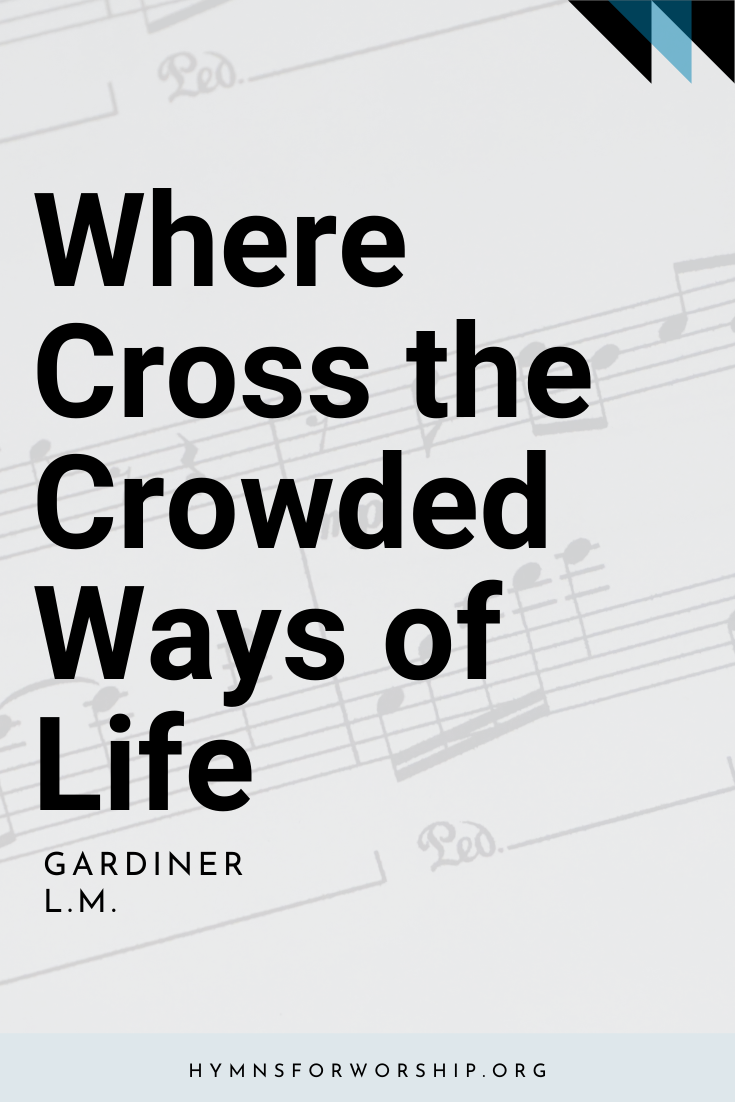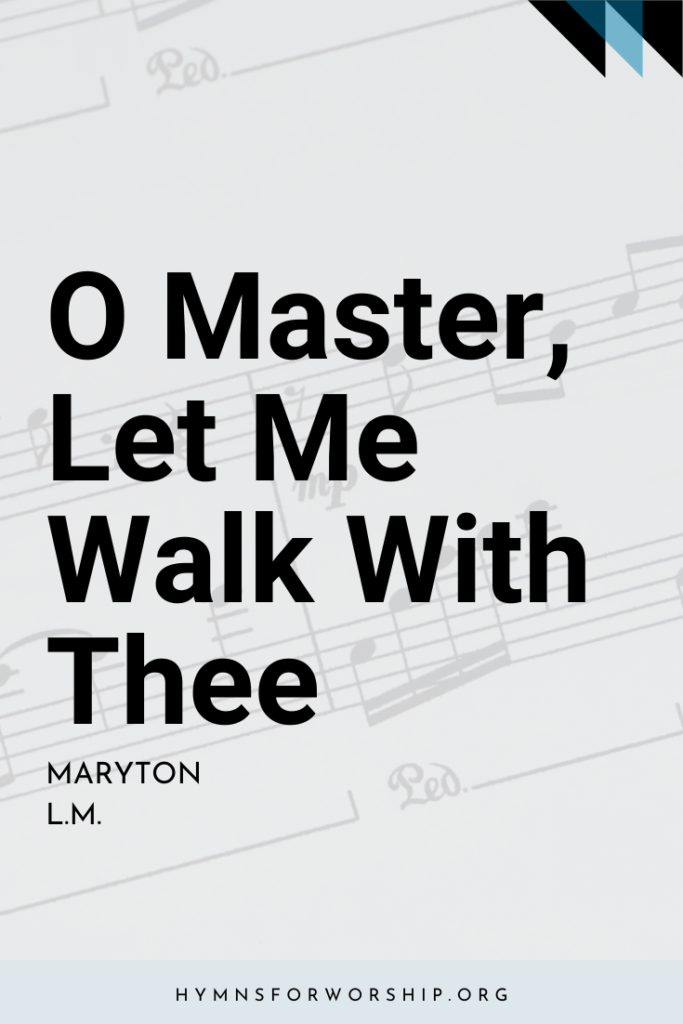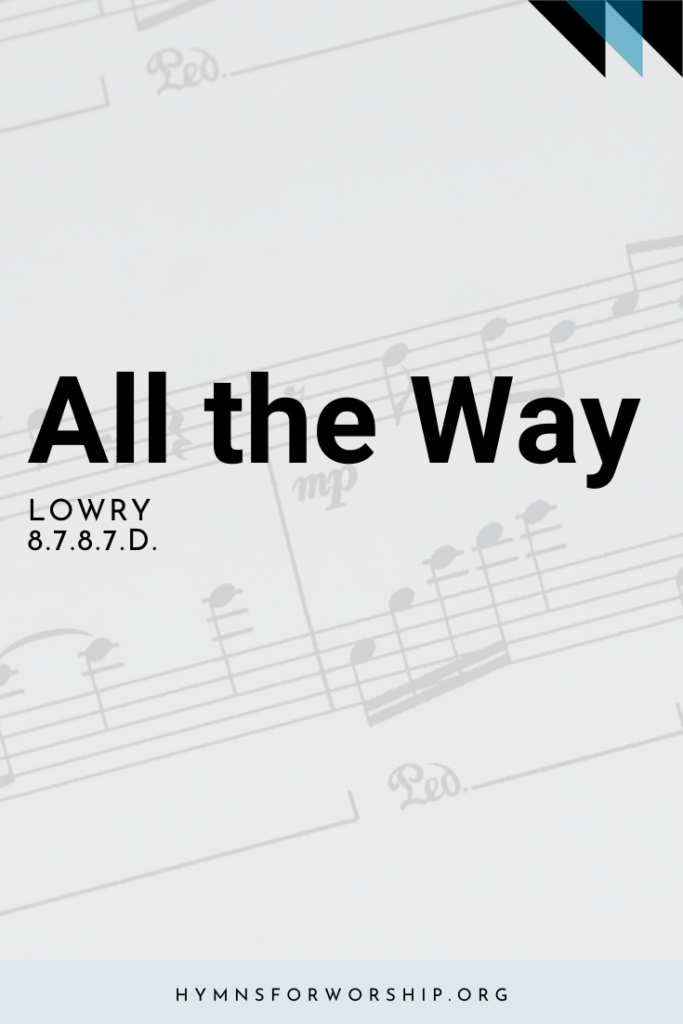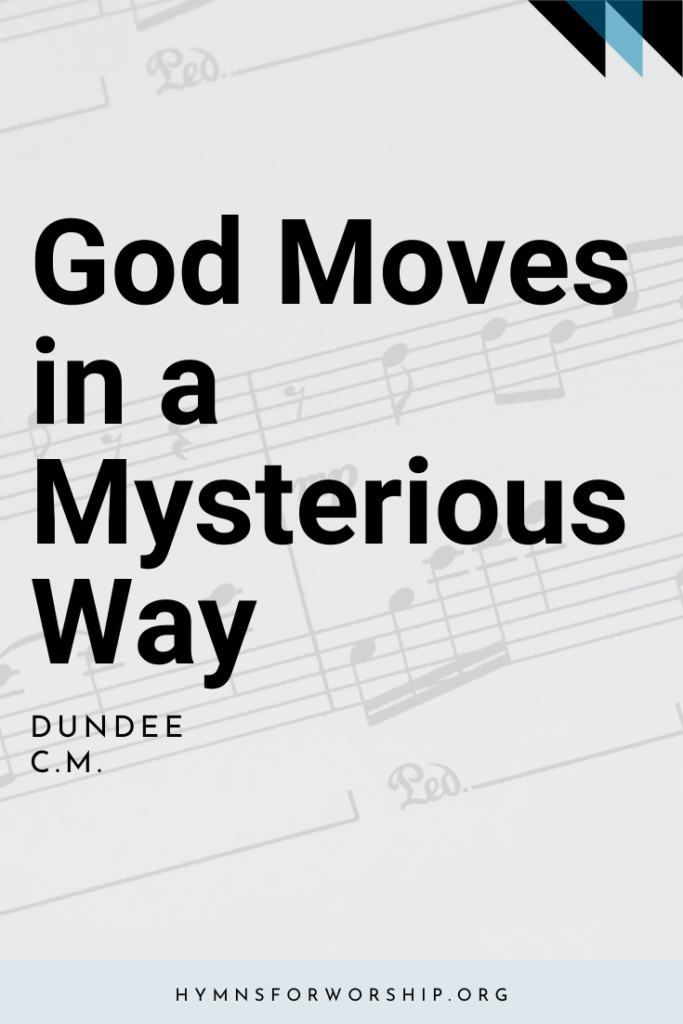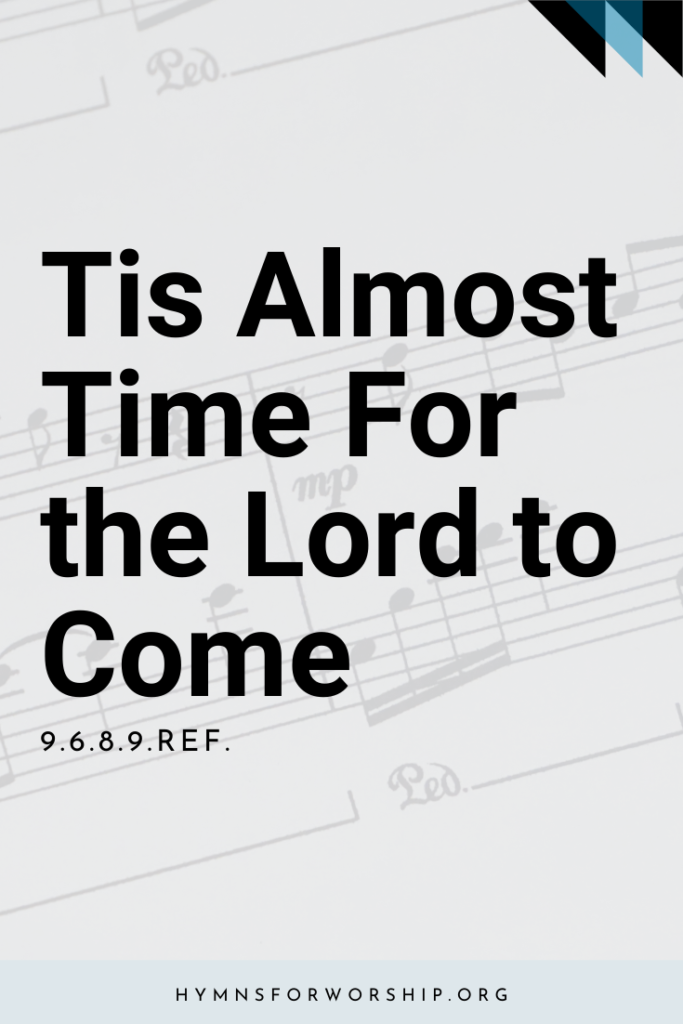CHRISTIAN CHURCH >> Mission of the church
SDAH 355
Where cross the crowded ways of life,
where sound the cries of race and clan,
above the noise of selfish strife,
we hear your voice, O Son of Man.
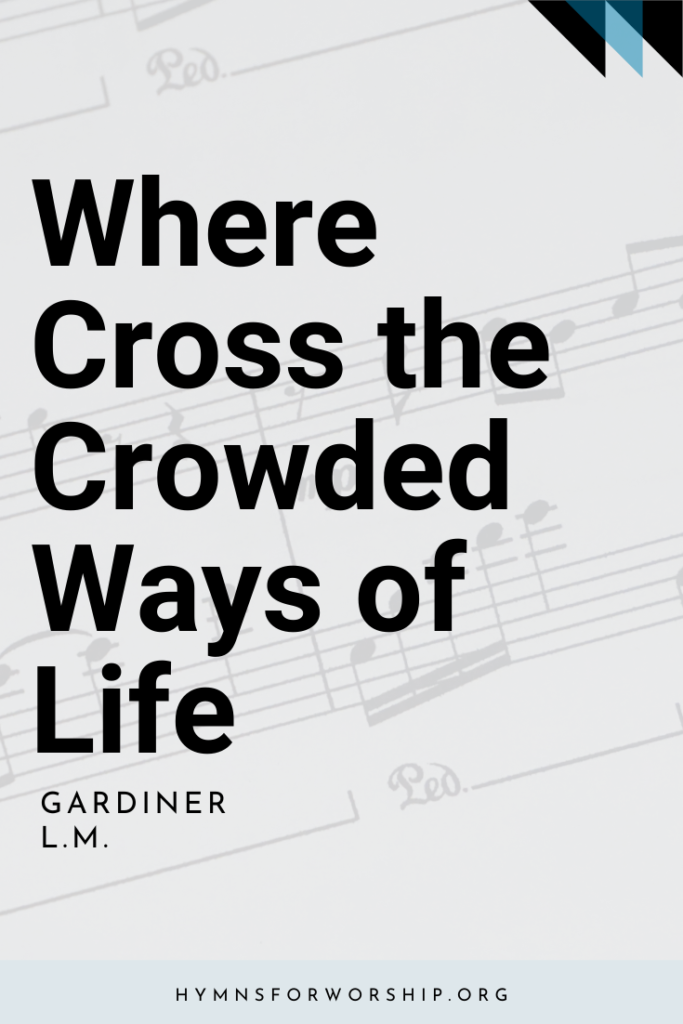

Text
1
Where cross the crowded ways of life,
where sound the cries of race and clan,
above the noise of selfish strife,
we hear your voice, O Son of Man.
2
From tender childhood’s helplessness,
from woman’s grief, man’s burdened toil,
from famished souls, from sorrow’s stress,
your heart has never known recoil.
3
The cup of water given for you still
holds the freshness of your grace;
yet long these multitudes to view
the sweet compassion of your face.
4
O Master, from the mountainside
make haste to heal these hearts of pain;
among these restless throngs abide;
O tread the city’s streets again.
5
Till all the world shall learn your love
and follow where your feet have trod,
till, glorious from your heaven above,
shall come the city of our God.

Hymn Info
Biblical Reference
(d) Matt 10:42
Author
Frank M. North (1850-1935) alt.
Hymn Tune
GARDINER
Metrical Number
L.M.
Arranged
Wm. Gardiner’s Sacred Melodies, 1815
Alternate Tune
Lower key, SDAH 177
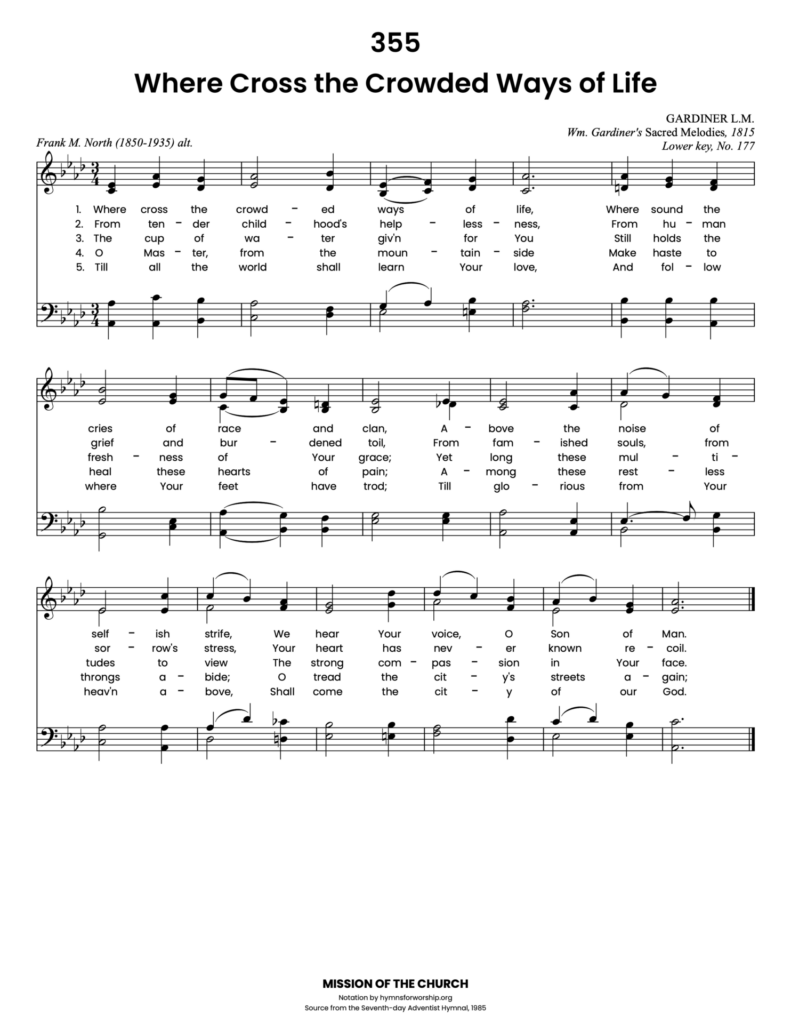
Get the hymn sheet in other keys here
Notes
Make each hymn more meaningful with these helpful tools: Short, ready-to-use hymn introductions for church bulletins, multiple ways to introduce a hymn based on your worship theme and in-depth history and insights to enrich your song service.

